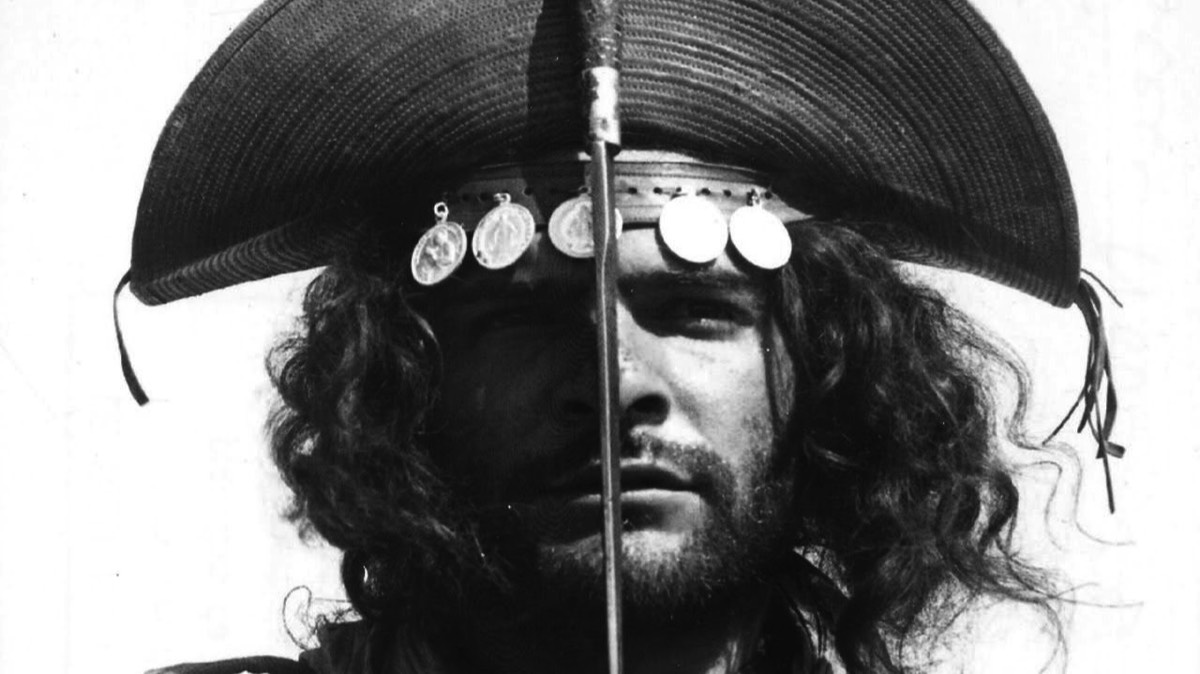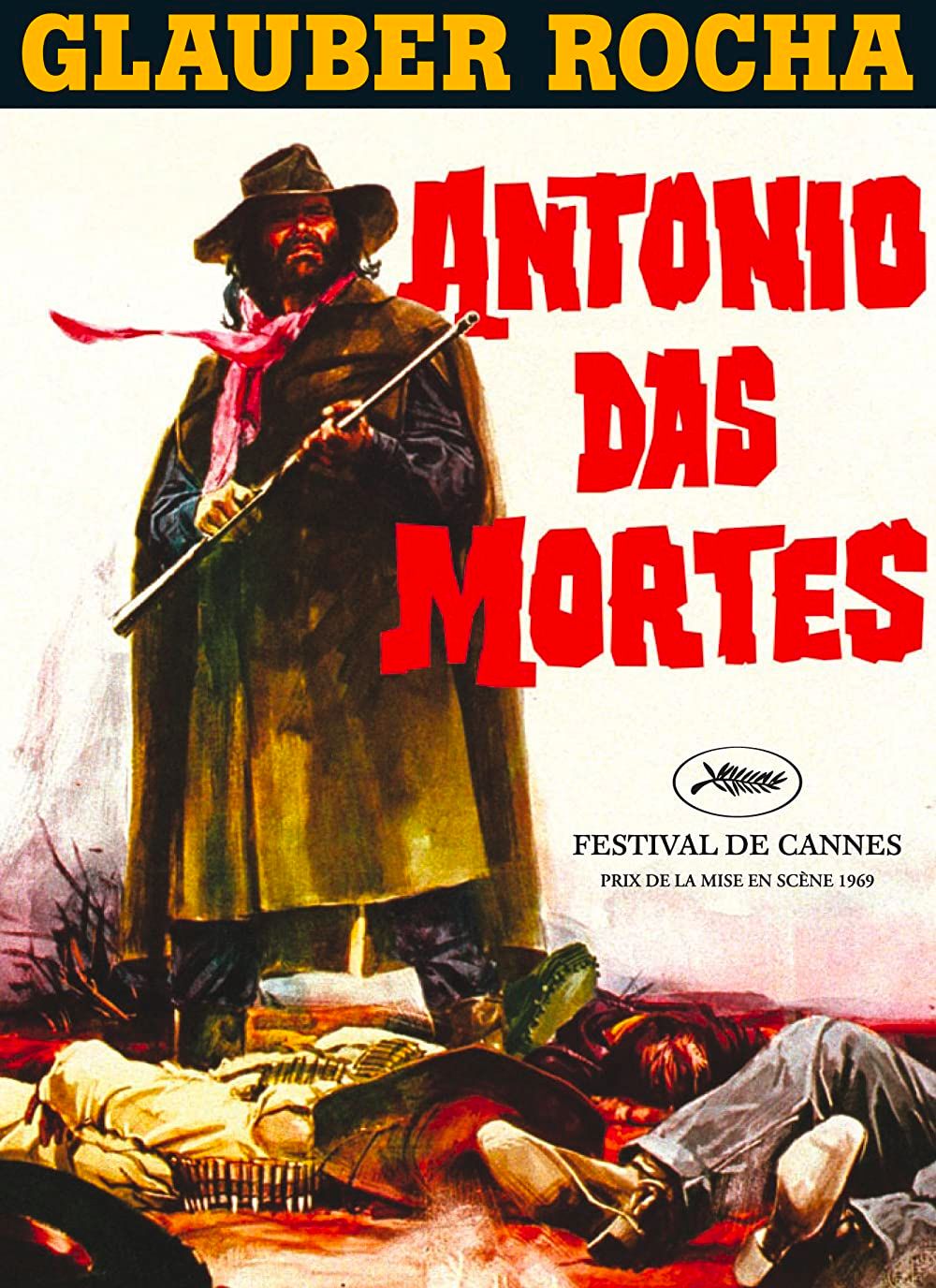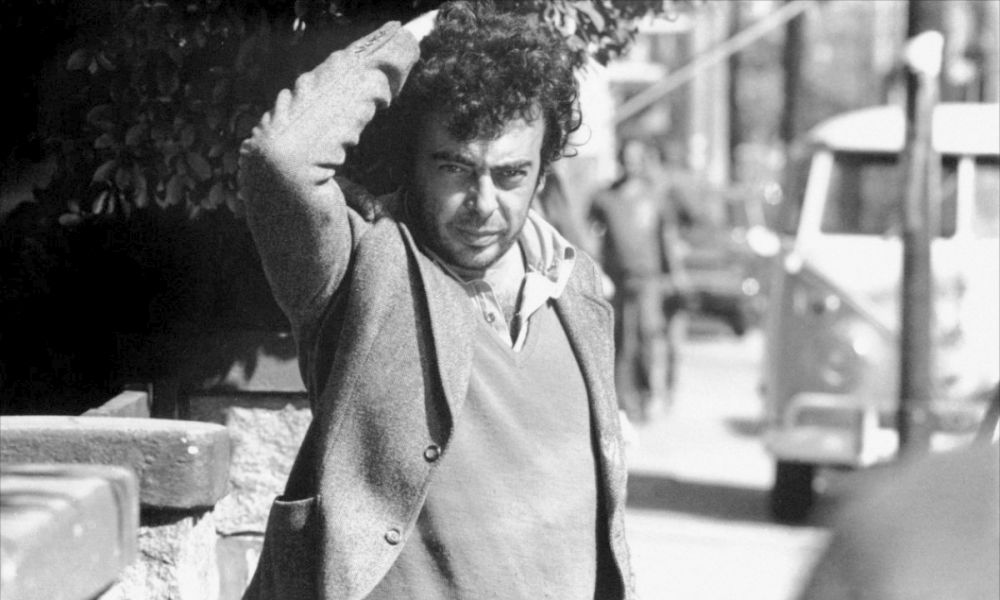"Rocha was the principal theorist and most flamboyant practitioner of Brazil's Cinema Novo (New Cinema)... Rocha insisted on finding a filmic language of a uniquely Brazilian and Latin American quality - a kind of cinematic equivalent of 'magic realism'. He aimed to instil cultural nationalism through a polemical, non-commercial cinema, and argued that violence could transform a social order whose essence was hunger." - The Movie Book, 1999
Glauber Rocha
Director / Screenwriter / Producer / Actor / Production Designer
(1939-1981) Born March 14, Vitória da Conquista, Bahia, Brazil
Top 250 Directors
(1939-1981) Born March 14, Vitória da Conquista, Bahia, Brazil
Top 250 Directors
Key Production Country: Brazil
Key Genres: Drama, Political Drama, Political Satire, Documentary, Crime Drama, Adventure Drama
Key Collaborators: Eduardo Escorel (Editor), Mauricio do Valle (Leading Character Actor), Hugo Carvana (Leading Character Actor), Rosa Maria Penna (Leading Character Actress), Antonio Pitanga (Leading Actor), Geraldo Del Rey (Leading Actor), Claude-Antoine (Producer), Othon Bastos (Leading Character Actor), Sergio Ricardo (Composer), Jofre Soares (Character Actor), Danuza Leao (Character Actress), Joel Barcellos (Character Actor)
Key Genres: Drama, Political Drama, Political Satire, Documentary, Crime Drama, Adventure Drama
Key Collaborators: Eduardo Escorel (Editor), Mauricio do Valle (Leading Character Actor), Hugo Carvana (Leading Character Actor), Rosa Maria Penna (Leading Character Actress), Antonio Pitanga (Leading Actor), Geraldo Del Rey (Leading Actor), Claude-Antoine (Producer), Othon Bastos (Leading Character Actor), Sergio Ricardo (Composer), Jofre Soares (Character Actor), Danuza Leao (Character Actress), Joel Barcellos (Character Actor)
"Rocha's concern with thematic dialectics is most apparent in his explorations of Brazilian popular culture, which he perceived as representing both a permanent rebellion against oppression and the evasion of social problems... Rocha's efforts to form a genuinely Brazilian cinema, founded on authentic themes and expressed through an idiom peculiar to Latin America, led him to make beautiful and moving films which continue to speak for his ideals." - John Mraz (International Dictionary of Films and Filmmakers, 1991)
"The radical films of Glauber Rocha draw on the cultural traditions of Brazil. Often contrasting primitive and modern facets of his country, Rocha uses ritualized theatrical techniques and political texts. Rocha was the leader of the group Cinema Novo, a cooperative set up in the late 1950s, whose aim was to free Brazilian films of American influence." - Ronald Bergan (Film - Eyewitness Companions, 2006)

Black God, White Devil (1964)
"He studied law before becoming a theatre director and film critic, the helped to create the Brazilian cinema novo, a movement concerned with the underdeveloped status of the country and the search for Brazilian identity. He made his debut as a director with the short Pátio (1959), and was known for his radical, provocative approach to directing and his preference for using non-actors in his films." - Chambers Film Factfinder, 2006
"Perhaps the premier Brazilian filmmaker, Rocha is an artist with a social conscience who makes films reflecting the barbarity, beauty, earthiness, and inequality in the culture of his country. Sometimes he illustrates truths through myths." - William R. Meyer (The Film Buff's Catalog, 1978)
"In 1962 he completed his first feature film as director, Barravento, followed by superb films like Black God, White Devil and Antonio das Mortes which made him a prominent contributor to the revitalised Brazilian cinema - Cinema Novo. These films reflected Rocha's interest in his country, its roots, traditions, conflicts, violence, mysticism and primitivism, but their powerful, lyrical imagery, backed with rich musical soundtracks and contained within essentially allegorical frameworks, were also strident calls to revolution in the face of oppression and exploitation." - The Illustrated Who's Who of the Cinema, 1983
Selected Filmography
{{row.titlelong}}
GF Greatest Films ranking (★ Top 1000 ● Top 2500)
21C 21st Century ranking (☆ Top 1000)
T TSPDT R Jonathan Rosenbaum S Martin Scorsese
21C 21st Century ranking (☆ Top 1000)
T TSPDT R Jonathan Rosenbaum S Martin Scorsese
Glauber Rocha / Fan Club
Manuel Asín, José Geraldo Couto, Sheila Schvarzman, Pere Portabella, José Carlos Avellar, Lírio Ferreira, Evaldo Mocarzel, Walter Carvalho, Beto Brant, Cesar Zamberlan, João Batista de Andrade, Maria do Rosário Caetano.
Manuel Asín, José Geraldo Couto, Sheila Schvarzman, Pere Portabella, José Carlos Avellar, Lírio Ferreira, Evaldo Mocarzel, Walter Carvalho, Beto Brant, Cesar Zamberlan, João Batista de Andrade, Maria do Rosário Caetano.
"Fan Club"
These film critics/filmmakers have, on multiple occasions, selected this director’s work within film ballots/lists that they have submitted.
These film critics/filmmakers have, on multiple occasions, selected this director’s work within film ballots/lists that they have submitted.


